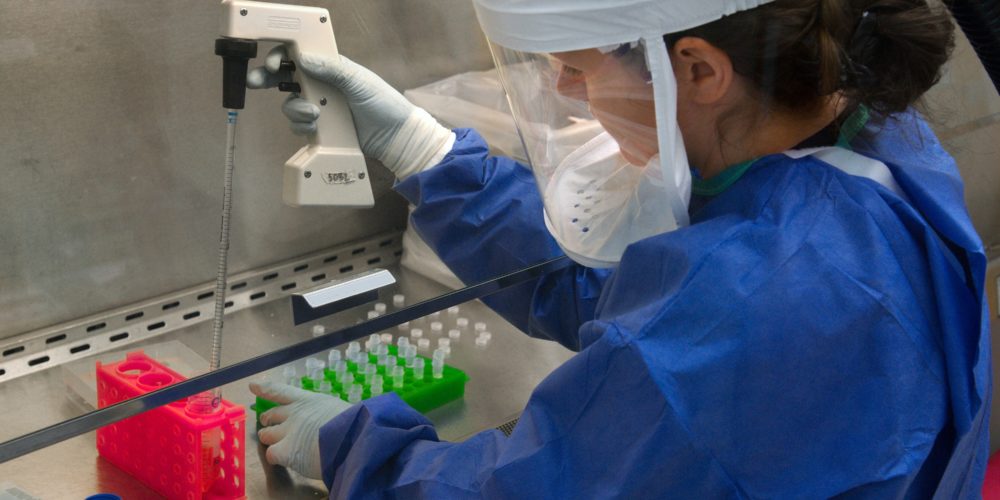
How Is the New Mutation of Covid19 Different From the Original Strain?
While Americans spent several months cautiously optimistic that the worst of the pandemic had passed, a new strain of coronavirus has emerged, causing experts to re-assess where we stand in our collective fight against COVID-19. The delta variant, first identified in India in December 2020, has fully reached the U.S., and has become the predominant variant throughout the country.
It’s considered a CDC variant of concern, a label that indicates a variant that has one or more of the following:
- Higher transmissibility rate
- More severe symptoms
- Reduced effectiveness of treatments or vaccines
Although it is still relatively new, research into the Delta variant has already yielded some worrying conclusions. The CDC is advising that the Delta variant is nearly twice as contagious (40-60%) as previous strains of coronavirus. The CDC’s data also suggests that the new variant may impact unvaccinated patients with more severe illness than previous strains.
This blog will take a look at a few of the major differences between the original COVID-19 strain and this new strain, so you can be in the know and better able to keep yourself and others safe from Delta and other covid variants.
What are the most common symptoms of the Delta variant?
Generally speaking, most variants of coronavirus do cause similar symptoms, though some variants (including Delta) can cause an increased number of patients to experience worse sickness as well as death.
Typical symptoms for COVID-19 range from mild to severe, and include:
- Fever or chills
- Cough
- Shortness of breath or difficulty breathing
- Fatigue
- Muscle or body aches
- Headache
- New loss of taste or smell
- Sore throat
- Congestion or runny nose
- Nausea or vomiting
- Diarrhea
For the following, more severe symptoms, it is recommended that you seek medical attention immediately: trouble breathing, chest pain or pressure that won’t go away, confusion, inability to wake or stay awake, and lips or face turning blue.
If you are concerned that you may be experiencing symptoms, the CDC has created a symptoms self-checker tool. You should also consider getting yourself tested. COVID-19 testing is effective in detecting all variants (though results do not differentiate exactly which strain is present).
Does the Covid vaccine protect against new variants?
Yes, research continues to show that FDA-authorized COVID-19 vaccines offer highly-effective protection against the Delta variant, as well as other known strains. Unvaccinated individuals present the greatest risk for transmission, as they accept a much, much higher risk of contracting COVID-19. New cases are surging in areas where vaccination rates are lower.
While COVID-19 vaccines do not guarantee 100% effectiveness, and breakthrough infections will occur, they are very rare. This was the case with the original coronavirus, as well. As has been the case with previously-identified variants, the amount of virus produced by the Delta variant goes down much more quickly for those who have been vaccinated. During their infectious period, which is shorter for those infected with the Delta variant, those experiencing a breakthrough infection can spread the virus to others.
The bottom line, as indicated by a New York Times analysis of relevant data, is that fully-immunized people account for less than 5% of hospitalizations and less than 6% of deaths from COVID-19. So the short answer is, yes, the COVID-19 vaccine does offer life-saving protections against the Delta variant.
Masks and Other Recommendations
With cases surging in many areas, the CDC is once again recommending that both vaccinated and unvaccinated Americans wear masks. Knowing what we know about Delta’s transmissibility and the reality of low vaccination rates (with only 50% of the country being fully-vaccinated as of this writing), widespread mask usage helps protect vulnerable populations.
The CDC released updated guidance on July 27, 2021, placing urgency on increasing vaccination coverage and encouraging the wearing of masks in public, indoor locations, even if fully vaccinated.
You Can Trust Biocollections For Reliable Information and Testing Services
COVID-19 poses a unique challenge in that many individuals who are infected with the virus show no symptoms—but they can still transmit the virus to others. For this reason, waiting for symptoms to indicate an infection is not a dependable method for understanding your own potential exposure and infectiousness.
BioCollections is proud to serve as a resource for individuals and groups in need of rapid and reliable COVID-19 testing. In fact, BioCollections was the first American lab to start testing for SARS-CoV-2. You can trust our experience and expert knowledge to help you understand whether or not you’ve been infected, so you can make sensible decisions and practice proper precautions moving forward.
We’re all in this together. Connect with us today to find testing locations, schedule an appointment, or learn more about employee testing solutions.
